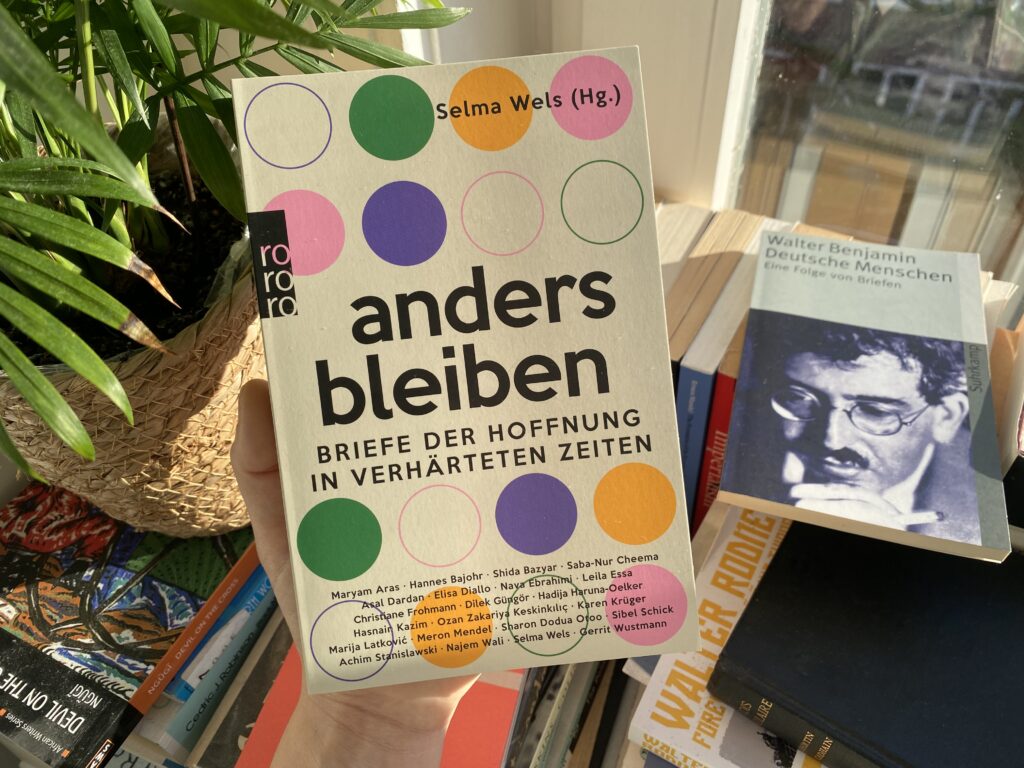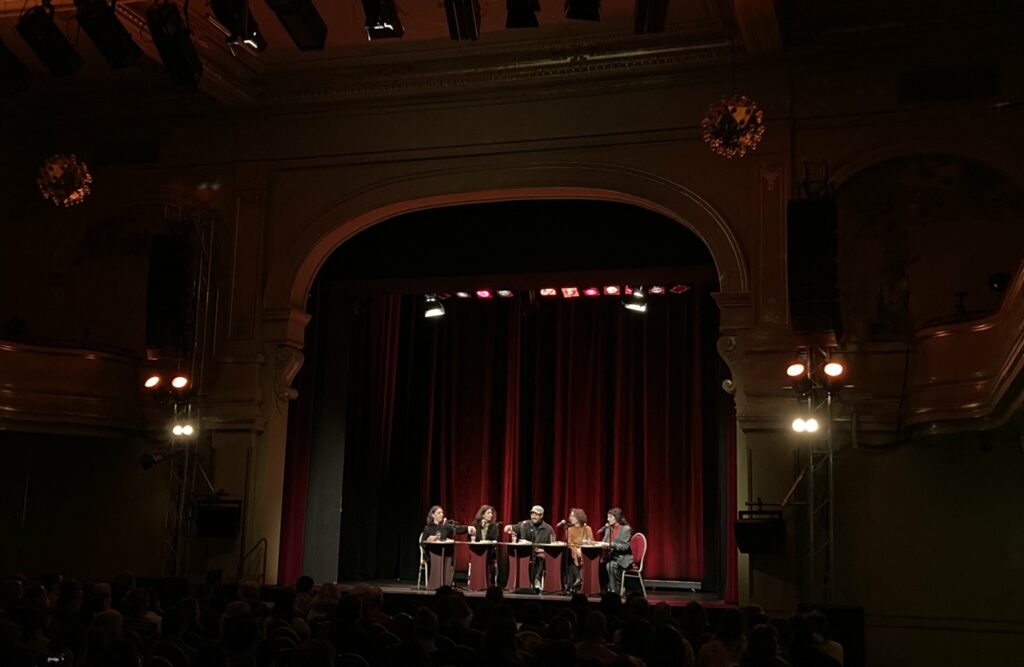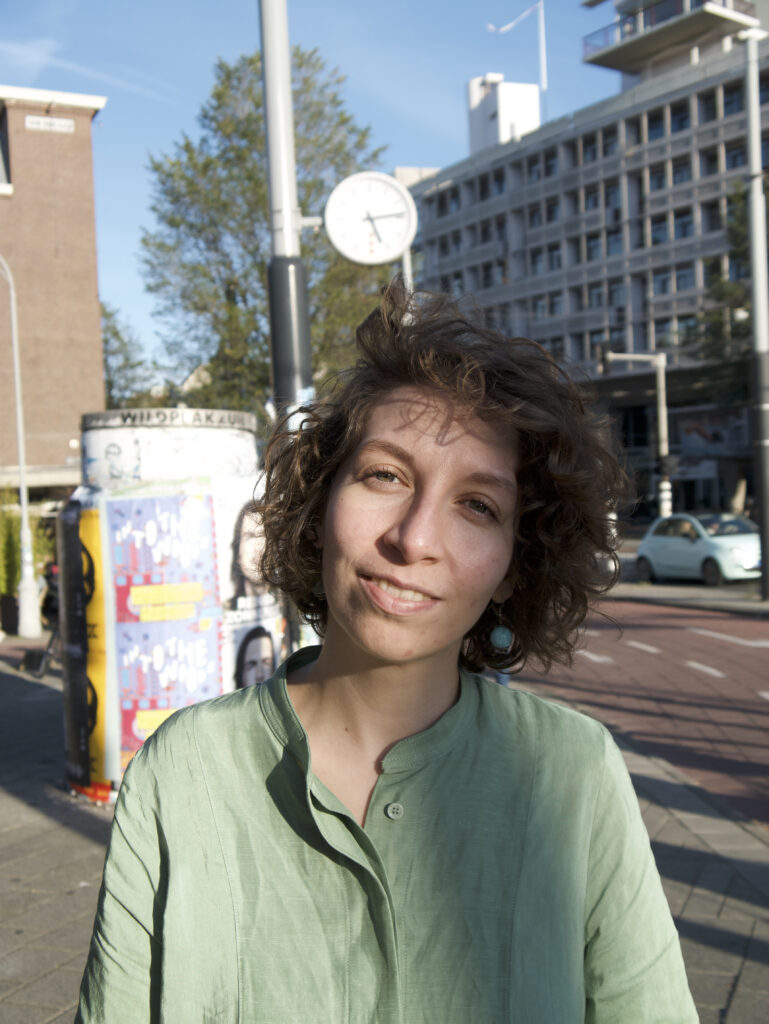Blog
On ‘staying different’ and sharing strategies

My first ideas for this research project back in 2018 were sparked by the anthology The Good Immigrant (ed. by Nikesh Shukla, 2016) and the search for comparable contemporary works in German. Shortly after, Eure Heimat ist unser Albtraum was announced (Your Homeland is Our Nightmare, ed. by Fatma Aydemir and Hengameh Yaghoobifarah, 2019) and the collaborative nature of these essay collections – in themselves, one inspiring the other, each inspiring further ones – became central to my thinking about authorial intention as a collective matter.
It means all the more to me that my first print publication while actually on this project forms part of an anthology that directly builds on the work of those that came before it. In her introduction to anders bleiben (staying different, 2023), our editor Selma Wels highlights the significance of Eure Heimat as she also traces the connection of our subtitular “letters of hope in hardened times” to an earlier and different kind of collection: Walter Benjamin’s Deutsche Menschen (German People, 1936). Under the pseudonym Detlef Holz, Benjamin had collated letters by famous Germans of the past in a manner that aimed to show an alternative mode of Germanness to that of the Nazis, while avoiding the latter’s censorship through its “camouflage title”.
Selma had initially approached all of us 22 authors with the idea for a Deutsche Menschen II, with the twist of us being living letter writers who reflect on the state of things in present-day, post-Hanau Germany. It was left to us who to address: historical or fictional figures, living or dead, family members or strangers. After our individual choices were made, it soon became apparent that there were also collective conversations to be had. While some of us felt uncomfortable with the Germanness of the initially proposed title, others felt doubtful about the reclamation of being Othered of the new one, or the potential to be read as a “softer”, hopeful alternative to angrier approaches that are crucial for the fight for a more just society. The finished book offers a glimpse into some of these processes, with Sharon Dodua Otoo centring this meta-level by writing directly to Selma and Selma reflecting on the editing process in her preface. It was vital to have such open exchanges with each other throughout and it ended up directly aligning with the chosen form of this letter collection: searching, critical, appreciative communication.
At the same time, the question how to write about hope without offering a glossy, overoptimistic view of Germany was also key to my individual writing process. My letter addresses Amadeo Richardson (1949-94), a Black German man who was deported from his place of birth for his activism in the Black Power Movement, but never ceased to envision a changeable society and “ein anderes Deutschland” (“a different Germany”). How could I adequately capture his deep hope for and practical commitment to change, I was asking myself, while making sure that my letter cannot come across as a feelgood story about an alternative, better Germany?
I’m grateful to Fatma Aydemir, who, in a full-circle moment for me, hosted the Berlin book release and asked incredibly perceptive questions about our letters, enabling me to expand on precisely this tension. As I aim to keep the blog posts bite-sized, I won’t do the same here, but am very much looking forward to reflecting on the correlating considerations of collective and individual decision-making in light of my wider research project in two upcoming conference papers: “Von Deutsche Menschen (1936) zu anders bleiben (2023)” at the GiG conference here in Utrecht (June) and “Writing about the Political Impact of Writing” at the AGS conference in Dublin (August).
For the time being I will end on the note of gratitude – importantly also to the other authors of anders bleiben and especially to Selma Wels, who brought it into the world and navigated all differences in a manner that enacts exactly what she set out to convey with this anthology: a complicated and active sense of hope.



